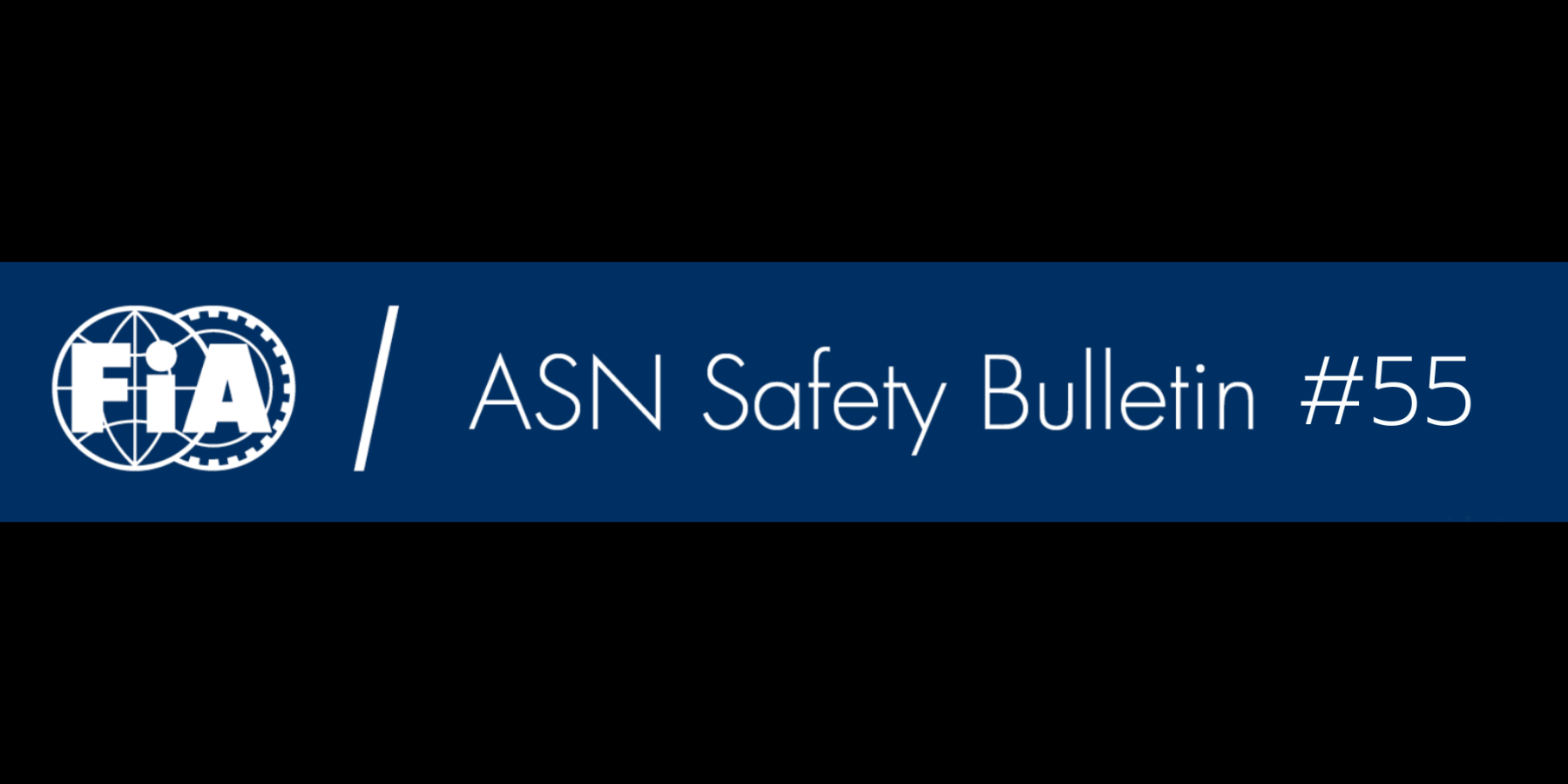Operational Debrief
19 Sep 2025 > Safety Bulletin
Operational Debrief
Dear Colleagues,
In this ASN Safety Bulletin, we want to highlight the importance of an Operational Debrief following a serious incident in motor sport.
When serious incidents/accidents occur, emergency response teams—including medical personnel, rescue workers, and recovery crews—play a vital role in managing the aftermath. To ensure these teams continually improve their effectiveness and safety, operational debriefs following serious incidents are crucial.
The aim of this ASN Safety Bulletin is to explore why operational debriefs are essential in motor sport and how they benefit medical, rescue, and recovery personnel.
Understanding the role of operational debriefs
An operational debrief is a structured meeting held after a serious incident, where those involved in the response come together to review the event. Debriefs are designed to analyse the incident, identify successes and areas for improvement, and develop strategies for enhancing future responses. They are an invaluable tool for learning and development within emergency response teams.
Why operational debriefs are important
Operational debriefs offer several key benefits, highlighting their importance in the context of motor sport:
1. Enhance response effectiveness
Debriefs allow teams to evaluate the effectiveness of their response to a serious incident. By analysing the sequence of events, teams can identify what worked well and what could be improved. This process provides valuable insights that can inform training and operational protocols, ultimately leading to more effective responses in the future.
2. Identify gaps in communication
Effective communication is critical during an emergency response. Debriefs can reveal gaps or breakdowns in communication among medical, rescue, and recovery personnel. By addressing these issues, teams can improve coordination and ensure that everyone involved is working in sync.
3. Promote safety and mitigate risk
Safety is the top priority during any emergency response. Debriefs help identify safety risks and hazards encountered during an incident. This feedback allows teams to implement measures to mitigate risks and ensure the safety of personnel in future operations. Debriefs can also address any safety concerns related to equipment, procedures, or environmental factors.
4. Facilitate continuous learning
Debriefs create an environment of continuous learning and improvement. They provide a platform for sharing experiences and lessons learned, allowing teams to build on their knowledge and skills. This learning culture fosters professional growth and helps teams stay updated with best practices in emergency response.
5. Strengthen team cohesion
Debriefs offer an opportunity for team members to come together, reflect on their roles, and support one another. This process can strengthen team cohesion and build camaraderie among medical, rescue, and recovery personnel. A cohesive team is better equipped to handle the pressures and challenges of responding to serious incidents.
6. Ensure accountability and transparency
Accountability is vital in emergency response operations. Debriefs provide a transparent forum to discuss actions taken during an incident and hold individuals accountable for their roles. This accountability fosters a sense of responsibility and reinforces the importance of adhering to protocols and procedures.
Best practices for conducting operational debriefs
To maximize the benefits of operational debriefs, motor sport organisations should follow these best practices:
1. Conduct debriefs promptly
Debriefs should be conducted as soon as possible after a serious incident while the events are still fresh in the minds of those involved. This promptness ensures accurate recollection and allows teams to address any immediate concerns.
2. Include all relevant personnel
Ensure that all key personnel, including medical, rescue, and recovery teams, are involved in the debrief. This inclusion provides a comprehensive perspective on the incident and fosters collaboration among different groups.
3. Create a safe and respectful environment
Debriefs should be conducted in a safe and respectful environment where team members feel comfortable sharing their thoughts and experiences. This atmosphere encourages open communication and honest feedback.
4. Focus on solutions and improvement
The goal of a debrief is to identify areas for improvement and develop solutions. Encourage participants to focus on constructive feedback and avoid assigning blame. This approach promotes a positive and solution-oriented mindset.
5. Document findings and recommendations
Document the key findings and recommendations from the debrief. This documentation serves as a reference for future training and operational planning. It also provides a record of continuous improvement efforts within the organisation.
We kindly request your support to promote these updated Guidelines among your event organisers, officials, and volunteers.
Thank you for your continued commitment to improving safety across the sport.
Best regards,
FIA Safety Department
If you have any topics you would like us to cover in future bulletins please send your suggestions to the FIA Safety Department.
To read the other articles about the ASN Safety Bulletins, please visit the FIA website. You can also read by clicking here.



